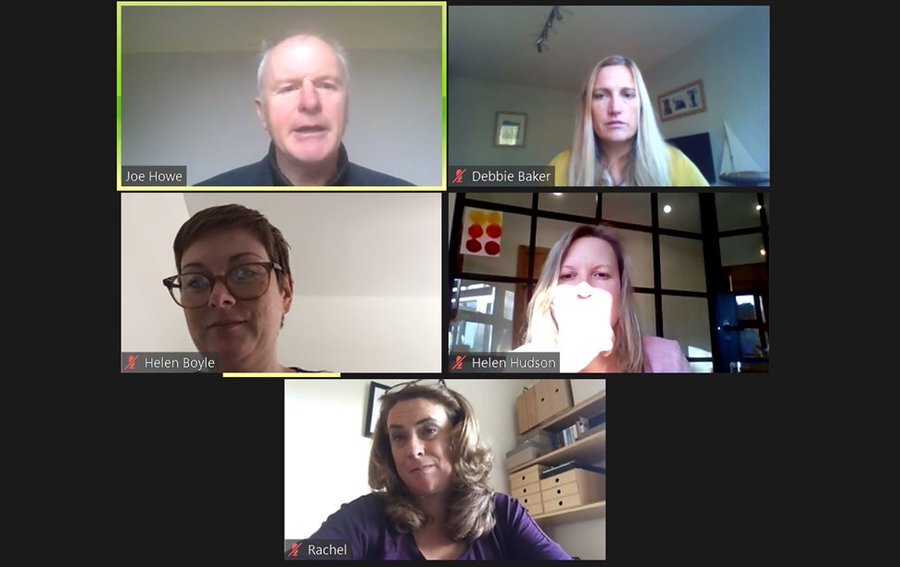
DECARBONISING INDUSTRY IN THE NORTH WEST – A NWHA WEBINAR
Professor Joe Howe, executive director of the Thornton Energy Research Institute at the University of Chester, and Chair of the North West Hydrogen Alliance, looks back the latest webinar hosted by the Alliance.
Recently we hosted a webinar looking at decarbonising industry in the North West, and the role hydrogen can play in it. We were lucky to be joined by:
- Debbie Baker, Public Affairs Director, CF Fertilisers
- Helen Hudson, Head of Sustainable Manufacturing at Unilever
- Helen Boyle, Regional Development Manager at Cadent
- Rachel Shorney, Stakeholder & Community Engagement Manager at SP Energy Networks
It’s clear that hydrogen has a big role to play in decarbonisation, and we’re already seeing it in action through projects like HyNet. As well as in large scale projects, hydrogen can be used across the supply chain, with uses ranging from industrial heating to transportation. Many small business owners attended the webinar, and made it clear that they wanted to find ways to decarbonise with hydrogen.
One of the key topics that came up was cost. With the Ten Point Plan announcement last month, funding was at the front of many minds. The burden of cost can’t fall to one group, whether Government, consumers or businesses, but the consensus was that prices will go up to cover the cost of implementing Net Zero technologies. This price rise is inevitable but there was some debate about how much Government and industry input there needs to be.
It was really positive to see so much interest in hydrogen. We couldn’t answer all the questions that came in during the event, but we’ve made sure the answer any other questions below. Anyone that wasn’t able to attend the event can watch it here.
The event generated a lot of interest in membership, so we could soon have more people on board, helping to drive forward the hydrogen agenda in the North West.
Q: How is hydrogen going to be used?
Hydrogen can be used in a variety of ways as a clean low carbon energy for industry, homes and transport. It can be used to generate low carbon electricity when the wind is not blowing or the sun shining, to fuel vehicles, especially trucks, buses and trains, and ultimately as a direct replacement for natural gas in domestic heating.
Q: What is purple hydrogen?
Purple hydrogen is commonly used to describe hydrogen produced from nuclear-powered electrolysis.
Q: How can companies get involved in the projects discussed?
HyNet and HyDeploy were two of the large-scale projects that came up frequently during the webinar. The contact pages for these projects are available below. The North West Hydrogen Alliance can also help to put you in touch with the relevant member organisation. Just email nwha@fontcomms.com.
For HyNet, email hynet@wsp.com
For enquiries about HyDeploy, go to https://hydeploy.co.uk/contact/
Q: Is there enough commitment from the Government to push the hydrogen agenda?
The Ten Point Plan for a Green Industrial Revolution was a welcome starting point. We’re so pleased the Government has listened and is providing much needed investment and policy development into hydrogen. This will put hydrogen technology into the spotlight. We welcome the creation of a hydrogen powered Village followed by a Hydrogen powered town. HyNet is happening right now, and projects like these have a key role to play in industrial decarbonisation and supporting the decarbonisation of the wider economy.
We encourage the Government to support the research already being done in the sector to accelerate the deployment of hydrogen, and ensure we’re all working towards the same goal. Hopefully the hydrogen strategy expected next year will help to create the roadmap we need to ensure hydrogen can be fully exploited, helping us to reach Net Zero by 2050.
Q: What role will consumers play in the future of hydrogen?
Consumers are already playing a role in the HyDeploy trial, where up to 20% hydrogen is being blended with natural gas in homes. Our recent report, ‘Public attitudes to hydrogen and Net Zero’ found that consumers are aware that they will need to take action in the future to help reach Net Zero by 2050. That said, there is still some misunderstanding of what Net Zero means, so the first step will be a public awareness campaign. We recommend that an independent Net Zero body be set up to drive this.
Q: Is ammonia a competitor to underground hydrogen storage?
One thing we’ve been clear on is that hydrogen needs to be part of a diverse energy mix. Ammonia and hydrogen are complementary low carbon energy carriers, and we expect that both are needed in the UK and globally to reach net zero.
The same applies to hydrogen storage. While some places have suitable natural assets for underground hydrogen storage, like salt caverns in Cheshire, other regions don’t. In this case, other forms of hydrogen storage could be more appropriate.
The end goal is ‘green hydrogen’, where renewable energy is used to create hydrogen from water via electrolysis. To do this, we will need very large increases in renewable electricity generating capacity, and a hydrogen transportation and storage network. ‘Blue hydrogen’ – produced by reforming natural gas combined with Carbon Capture, Utilisation and Storage – will allow us to rapidly deliver significant reductions in our CO2 emissions by the middle of this decade. Hydrogen produced through other means (like from ammonia or waste plastic) can also provide the benefits of hydrogen such as improved air quality.
Q: How will HyNet integrate with the wider decarbonisation roadmap?
A key part of the North West’s decarbonisation approach is the work taking place to develop a hydrogen economy, which is being spearheaded by the North West Hydrogen Alliance. This includes the HyNet project which intends to be piping low carbon hydrogen to industry in the region by the mid 2020’s.
Cadent, supported by Progressive Energy is developing the design of HyNet’s hydrogen distribution network, and, equally importantly, develop its operating philosophy. The integration of the network with bulk hydrogen storage is particularly important, as this gives the necessary level of flexibility to the operation of the system, allowing it to meet heat demand and future demand for flexible power generation. More information about the project is available on the project website. https://hynet.co.uk/
Earlier this year the North West received Government funding to map out the region’s journey to becoming the UKs first net zero carbon industrial cluster by 2040. Being led by Net Zero North West a decision on funding for phase 2 of the roadmap is expected soon.
Q: How can we increase the visibility of the North West’s green agenda nationally?
This is one of the goals of the North West Hydrogen Alliance. We have the industry, infrastructure, and innovation to make hydrogen a reality and we have been speaking to politicians and journalists about the importance of the North West region when it comes to hydrogen. In addition, many of our members are national or international companies that have existing or planned hydrogen activities in the North West. They are ideal champions of our regional work.
That said, we are always looking for new members who want to help the North West be recognised as a leader in the hydrogen space. Get in touch if this is something you would like to be involved in.

